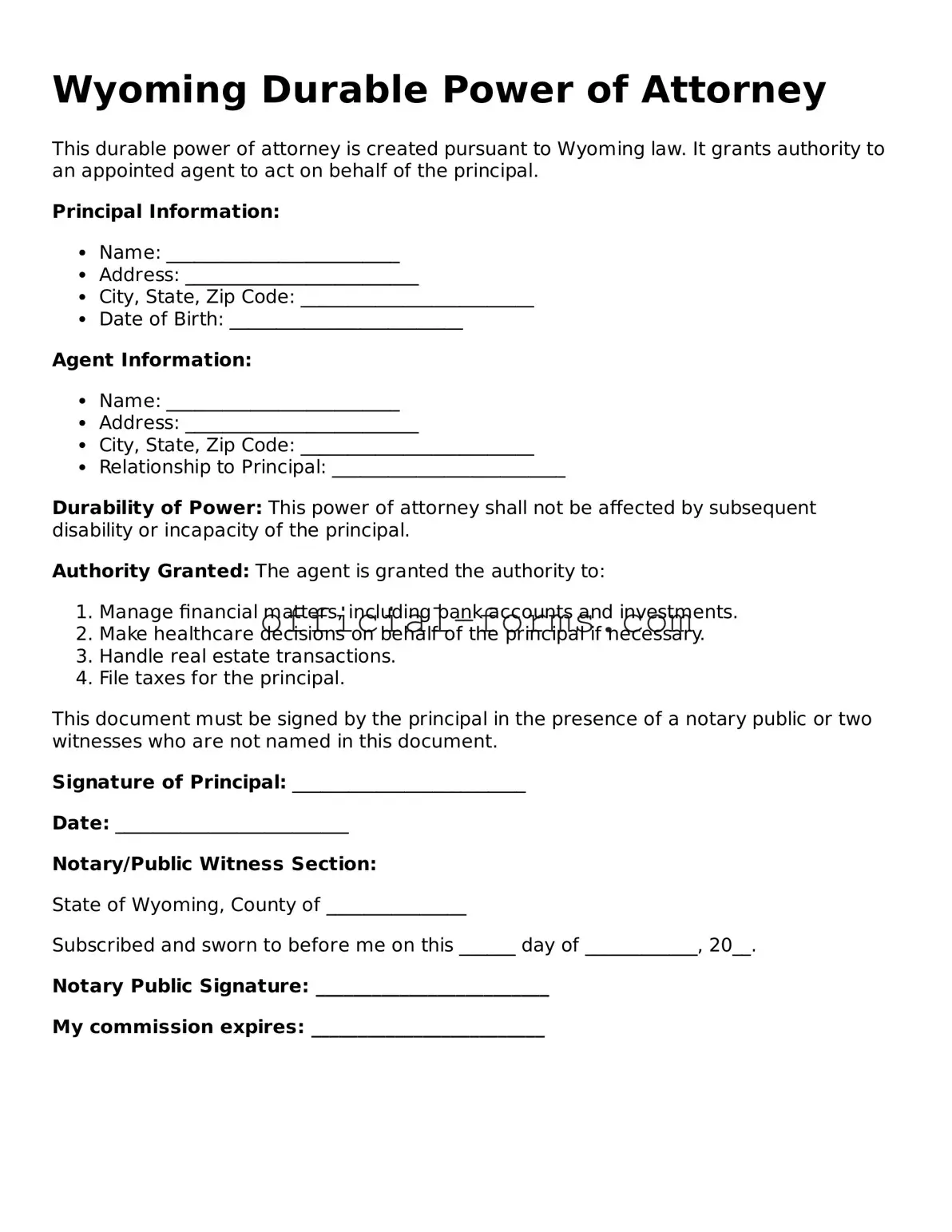Filling out a Durable Power of Attorney (DPOA) form in Wyoming can be a straightforward process, yet many individuals make mistakes that can lead to significant complications. One common error is failing to clearly identify the principal and the agent. The principal is the person granting authority, while the agent is the individual receiving that authority. If these roles are not explicitly defined, it can create confusion and potentially invalidate the document.
Another frequent mistake involves not specifying the powers granted to the agent. A DPOA should clearly outline what decisions the agent can make on behalf of the principal. Vague language can lead to misunderstandings and disputes. For example, if the document simply states that the agent can manage finances without detailing which financial decisions are included, the agent may overstep their bounds or face challenges in executing their duties.
People often neglect to date the form. A DPOA must be dated to establish when it takes effect. Without a date, there can be disputes about the validity of the document, especially if the principal's condition changes. This oversight can lead to delays in decision-making during critical times when the principal may no longer be able to communicate their wishes.
Additionally, individuals sometimes forget to sign the form in the presence of a notary public or witnesses, as required by Wyoming law. This step is crucial for the document's legitimacy. If the DPOA is not properly notarized or witnessed, it may be deemed invalid, leaving the principal without the necessary support during incapacitation.
Another mistake is failing to communicate with the chosen agent about their responsibilities. A DPOA is not merely a formality; it requires trust and understanding between the principal and the agent. If the principal does not discuss the scope of authority and expectations with the agent, the agent may act in ways that do not align with the principal's wishes.
Finally, many individuals overlook the need to review and update the DPOA periodically. Life circumstances change, and so do relationships and preferences. Failing to revise the document can lead to outdated information or an agent who is no longer appropriate for the role. Regular reviews ensure that the DPOA remains relevant and effective, safeguarding the principal's interests.

